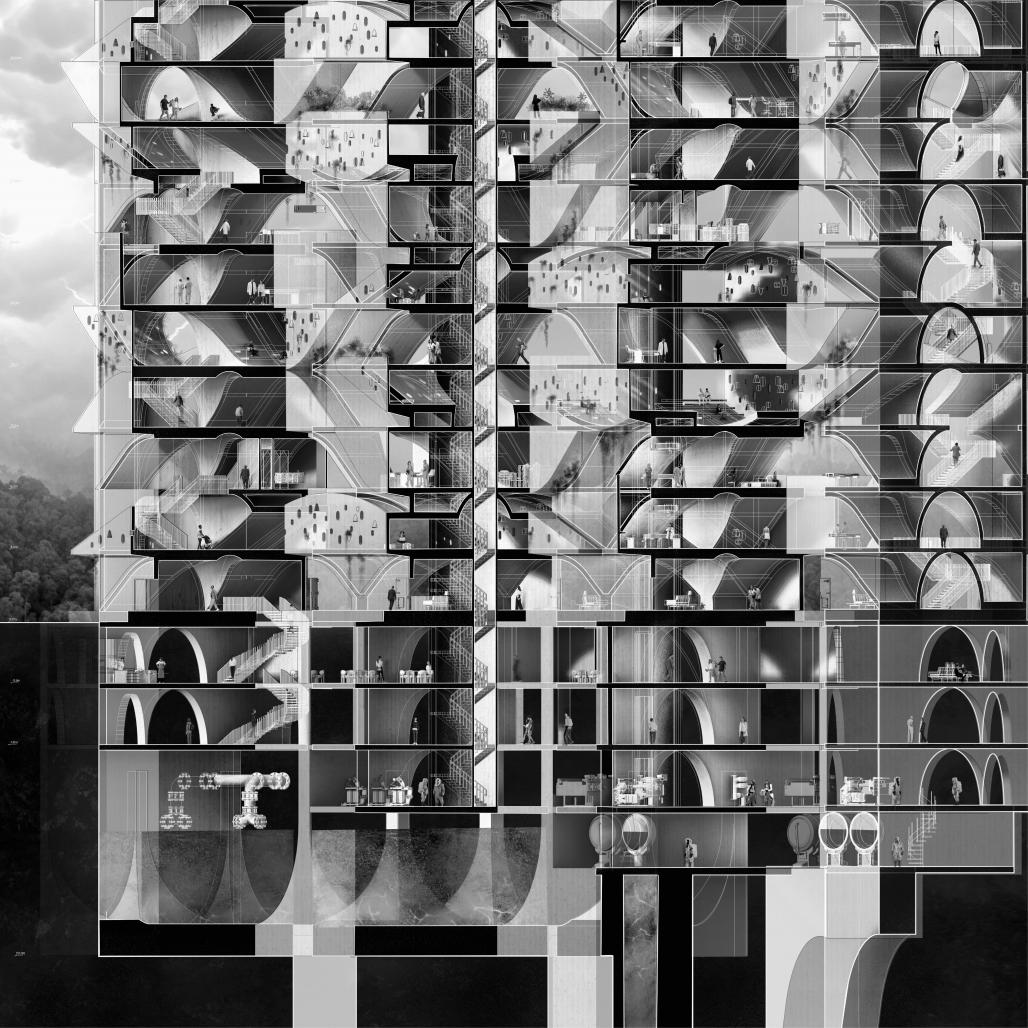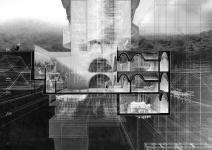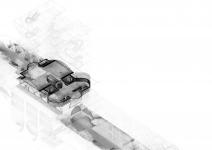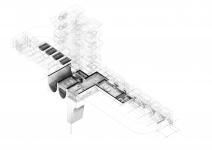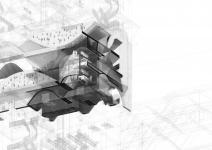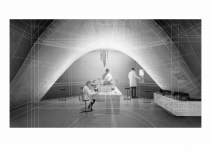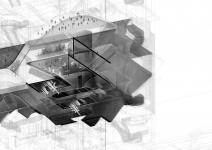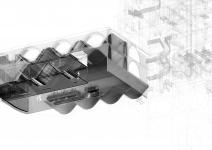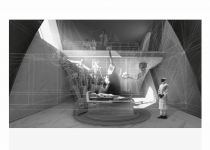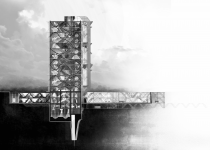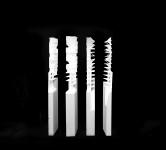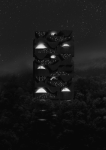This project focuses on transforming the abandoned U.S. military bunkers in Vieques, Puerto Rico, into spaces for environmental regeneration and human well-being. These bunkers, remnants of violence and toxic contamination from military use during World War II and later as weapons testing sites, are now monuments to oblivion. The military expropriated over 21,000 acres of Vieques, dividing the island for ammunition storage, civilian confinement, and firing ranges, displacing the local population and devastating the agricultural economy. The bunkers, once designed to withstand explosions, have been abandoned since the U.S. Navy’s departure in 2003, and their misuse as toxic waste storage and even nightclubs reflects the lack of strategies for reintegrating them into the island's development. Their presence continues to limit land use and remains a painful reminder of militarization and displacement.
This project seeks to transform these concrete structures into living laboratories and research centers focused on studying contamination, such as heavy metals, and providing solutions for their mitigation. By reconfiguring the bunkers' curved architectural designs, new spaces will be created that integrate water, vegetation, and human activity, transforming them into dynamic, adaptable ecosystems that interact with the environment. The intervention involves using bioremediation and regenerative agriculture techniques to restore the affected soils and provide a sustainable, toxin-free food supply. These spaces would not only be research hubs but also serve as community gathering areas, promoting physical and emotional health through collective healing and interaction.
The project also introduces inverted bleachers, transforming the bunkers into natural amphitheaters that foster well-being and connection. These structures will allow the community to engage with each other and participate in research on contamination’s effects. Furthermore, a “modern health theater” would act as a platform for preventive medicine and surgeries, enabling residents to address the long-term health consequences of contamination. This approach redefines the role of architecture, turning once-toxic spaces into dynamic, living environments that not only shelter but also regenerate their surroundings. The design of the No-Bunker is a new type of architectural organism that breathes and interacts with nature, offering a new model of resilience, health, and sustainability for Vieques and potentially other war-affected regions.
This approach combines architecture, science, and health to provide a comprehensive solution to the challenges of contamination and public health in communities affected by militarization. Through innovative design and research, this project aims to restore ecological balance, promote well-being, and create a sustainable future for the people of Vieques.
2024
Location_Puerto Rico, Vieques
_Project_Thesis
_Area_13.248m2
_2024_
The structure of the No-Bunker is based on reinforced concrete, similar to the original military bunkers, with the addition of strategically placed porous surfaces in the façade. These pores allow controlled light to enter, fostering the growth of vegetation within the walls, integrating the building with its natural environment. The design incorporates vaulted ceilings with central perforations, similar to architectural features found in churches, creating an open and airy space while allowing for ventilation and light diffusion. Below ground, excavation processes are used to create spaces for water purification, where contaminated water can be treated and filtered before being stored. Additionally, the underground levels house energy generators, harnessing renewable energy sources to power the building and its systems. This combination of sustainable design elements allows the No-Bunker to serve as a self-sufficient, environmentally integrated structure, capable of supporting research, community spaces, and ecological restoration efforts.
Designer: Luz Adriana Niño Jimenez
Supervisor: Daniela, Atencio - Claudio, Rossi - Daniel, Bonilla
